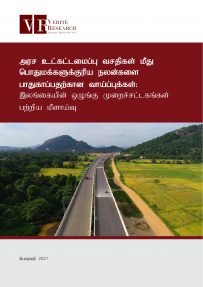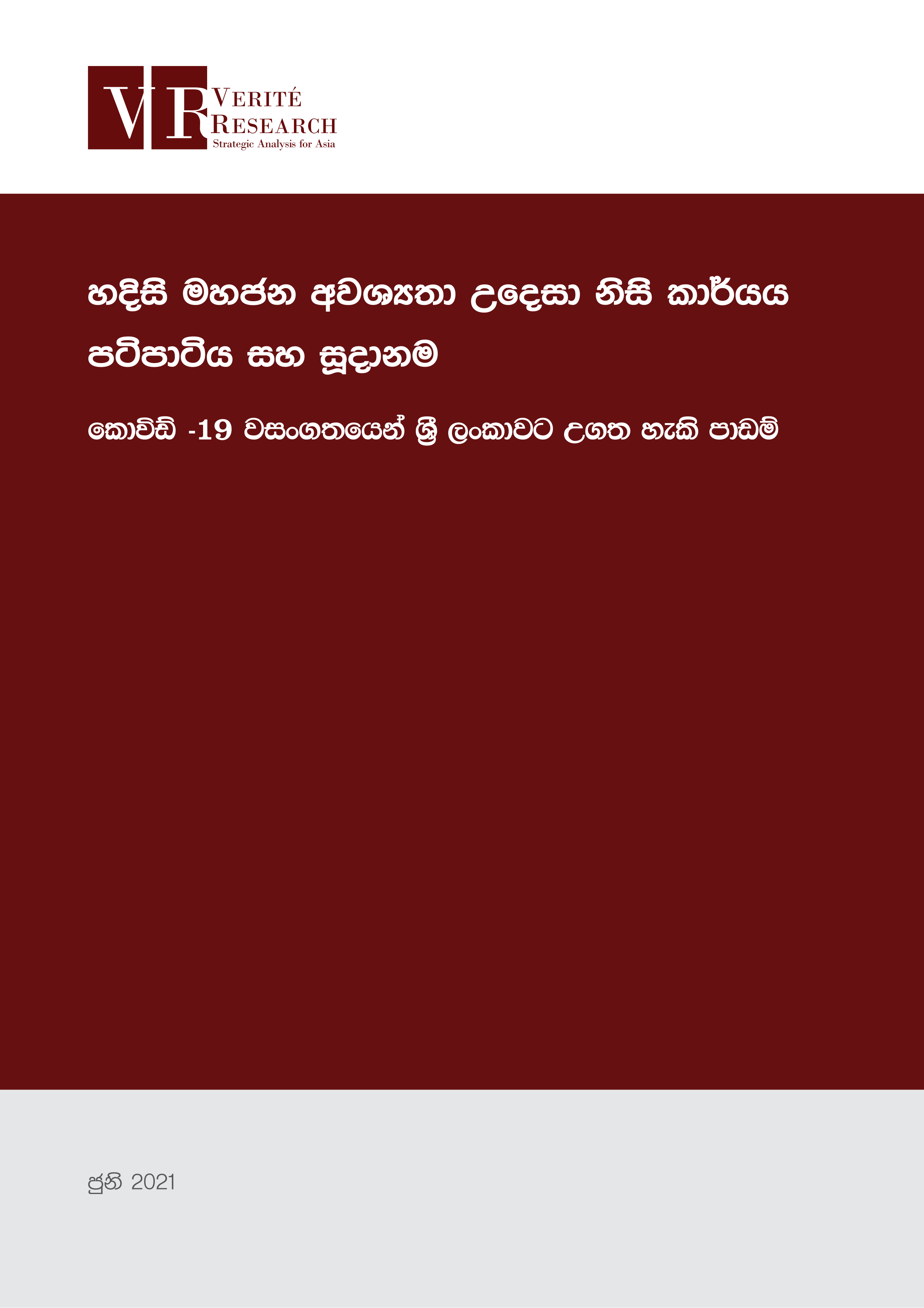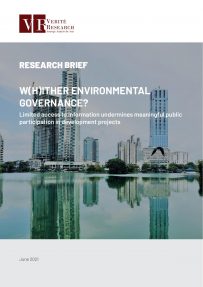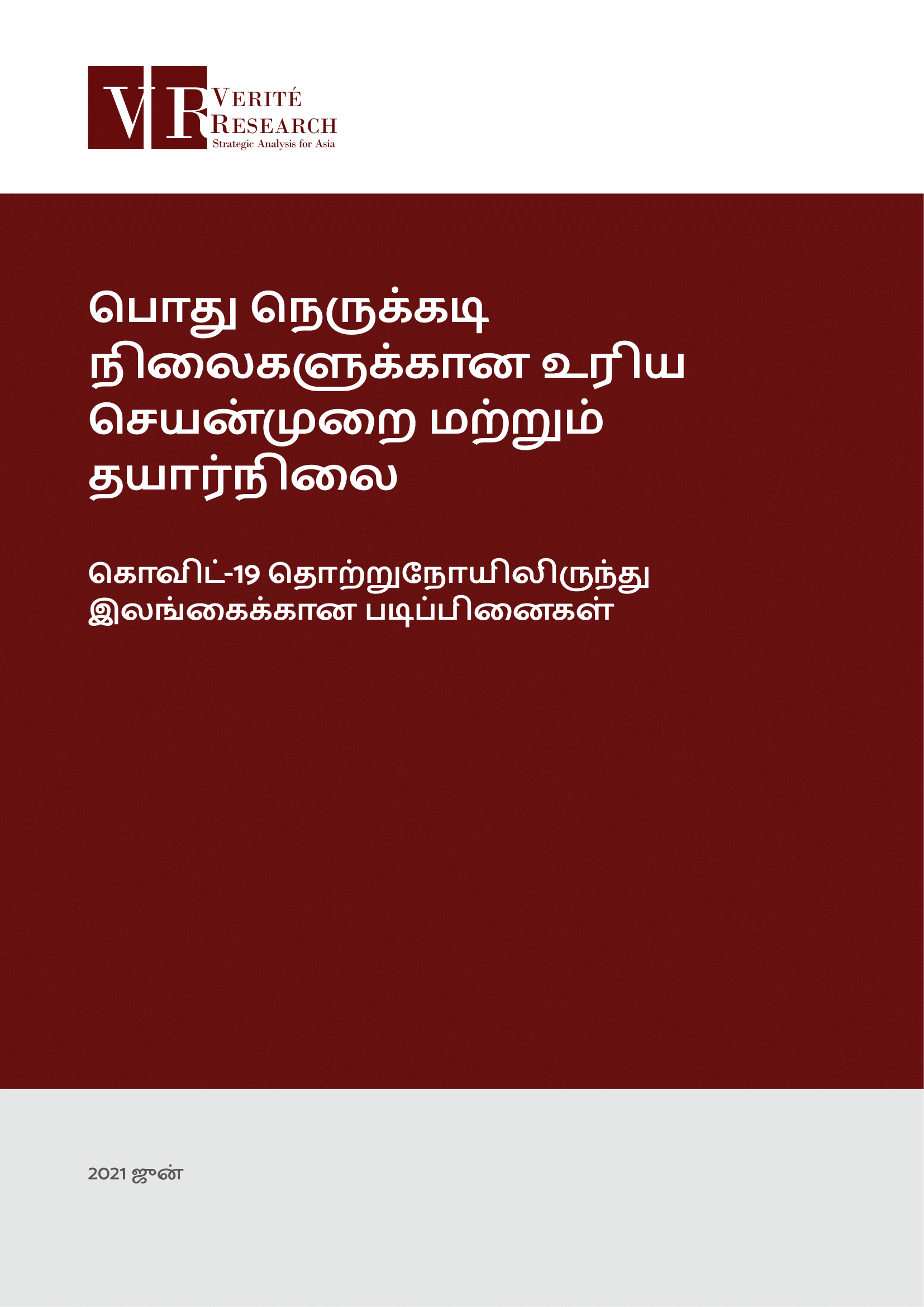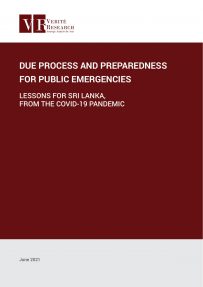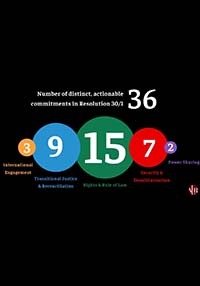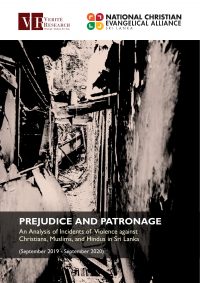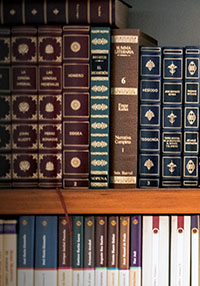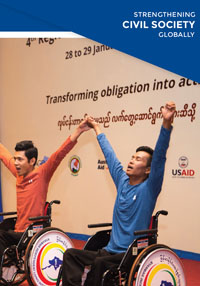உட்கட்டமைப்பில் முதலீடு செய்வது அபிவிருத்திக்கு இன்றியமையாதது. எவ்வாறாயினும், பலவீனமான ஆளுகையின் பின்னணியில், பெரிய மற்றும் பல்கூட்டு உட்கட்டமைப்பிற்கான அரச முதலீடு ஊழலுக்கான வளமான களமாக மாறி, விளைவாக நீடுறுதியல்லாத, செலவுகூடிய மற்றும் குறைதரமான உள்கட்டமைப்பை ஏற்படுத்துவதோடு உத்தேசித்த நோக்கங்களை நிறைவேற்றத் தவறிவிடுகிறது.
වෙරිටේරිසර්ච් ආයතනය විසින් සිදු කළ නවතම අධ්යයනය මඟින් කොවිඩ්-19 වසංගතය අතරතුර ශ්රී ලංකාවේ අධිකරණ පද්ධතිය මුහුණ දුන් අභියෝග සම්බන්ද නිසි කාර්යය පටිපාටික ඇඟවුම් ගවේෂණය කරයි. කොවිඩ් –19 සීමාවන් හේතුවෙන් අහිතකර බලපෑමට ලක් වූ ප්රධාන පෙලේ නිසි කාර්යය පටිපාටික අයිතිවාසිකම් දෙකක් එනම් සාධාරණ නඩු විභාගයකට ඇති අයිතිය සහ නෛතික නියෝජනයට සහ නීති ආධාර ලැබීමට ඇති අයිතිය එමගින් හඳුනා ගනී.
There is a surge in public agitation against environmental destruction caused by ongoing development projects in Sri Lanka. The surfacing of environmental issues after construction has commenced is highly problematic for two reasons. First, the construction may have already caused damage to the environment, which may be irreversible in certain cases. Second, the revising of original project plans to mitigate environmental damages can result in delays and increased costs.
கொவிட்-19 நோய்த்தொற்று காலப்பகுதியில் இலங்கையின் நீதி முறைமை சந்திக்க நேரிட்ட சவால்கள் காரணமாக உரிய செயன்முறை மீது ஏற்பட்ட தாக்கங்கள் தொடர்பில் இந்த அறிக்கையில் ஆராயப்படுகின்றது. கொவிட்-19 கட்டுப்பாடுகளின் காரணமாக கடுமையாக பாதிப்புக்குள்ளாகிய உரிய செயன்முறையின் இரண்டு பிரதான உரிமைகளை இவ்வறிக்கை அடையாளங்கண்டுள்ளது: (1) நியாயமான விளக்கமொன்றினை பெற்றுக்கொள்வதற்கான உரிமை மற்றும் (2) சட்ட பிரதிநிதித்துவம் மற்றும் சட்;ட உதவிகளை பெற்றுக்கொள்வதற்கான உரிமை.
Verité Research’s latest study explores the due process implications of the challenges faced by Sri Lanka’s judicial system during the COVID-19 pandemic. It identifies two key due process rights which are adversely affected by the COVID-19 restrictions, namely the right to a fair trial, and access to legal representation and assistance.
This is Verité Research’s latest study on the Sri Lanka government’s progress in fulfilling the commitments on reconciliation and accountability in UNHRC Resolution 30/1. At the 43rd session of the United Nations Human Rights Council (UNHRC) in February 2020, Sri Lanka informed of its decision to withdraw from co-sponsoring Resolution 40/1 of 2019, and its preceding Resolutions 34/1 of March 2017, and 30/1 of October 2015.
Ethno-religious violence is an enduring feature of Sri Lanka history regardless of changes to the country’s political leadership. This study offers insights in key trends and drivers of religious violence from September 2019 to September 2020. A total of 63 incidents of violence against Christians as well as episodes of discrimination against Muslims and Hindus are analysed.
On 22 October 2020, the Twentieth Amendment (20A) to the Constitution of Sri Lanka was enacted.[i] The 20A reversed much of the reforms introduced by the preceding Nineteenth Amendment (19A) to the Constitution, with the primary effect of the 20A being the consolidation of power in the office of the executive president. This article explores the 20A and is divided into two main sections. Firstly, it will briefly set out the background to the passage of the 20A. Second, the features of the 20A will be discussed in respect of their implications on governance and the constitution.
The 2019 Civil Society Organization (CSO) Sustainability Index for Asia was published in December this year. This index has been assessing the civil society sector in Sri Lanka since 2014. The sixth edition of the Index reports on the state of CSO sectors in nine countries in Asia.
The 2019 Civil Society Organization (CSO) Sustainability Index for Asia was published in December this year. This index has been assessing the civil society sector in Sri Lanka since 2014. The sixth edition of the Index reports on the state of CSO sectors in nine countries in Asia.
